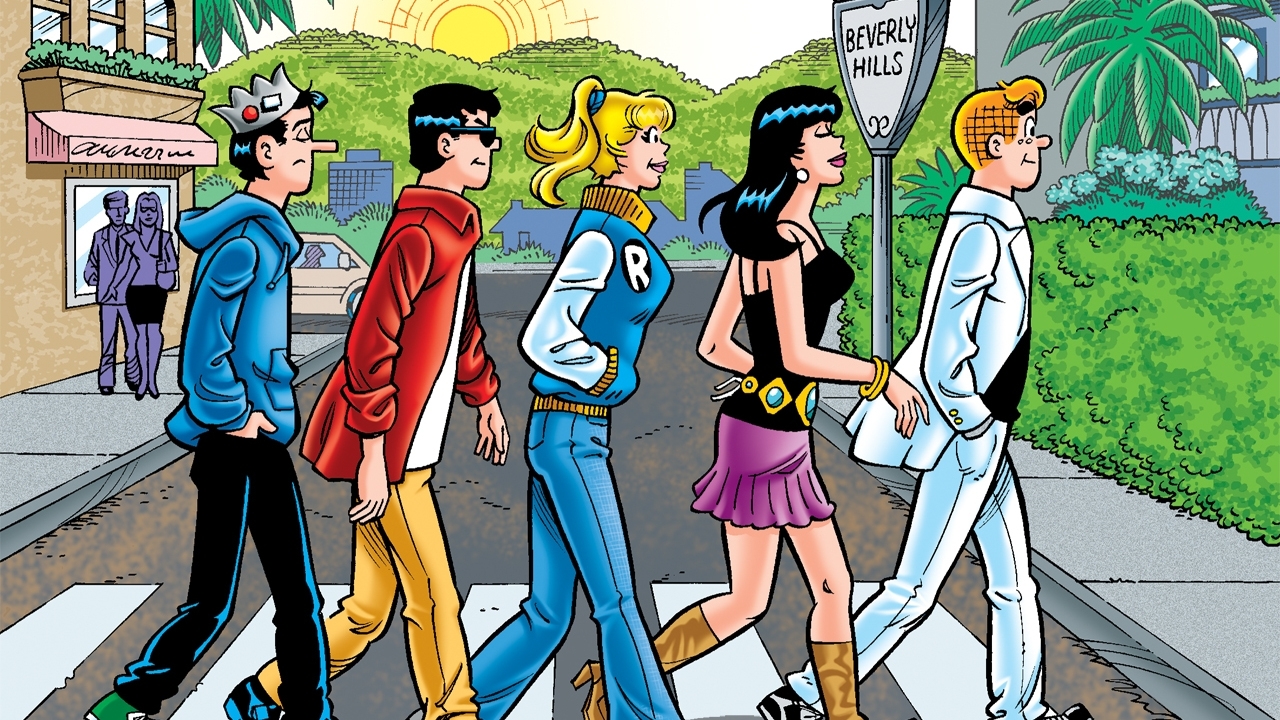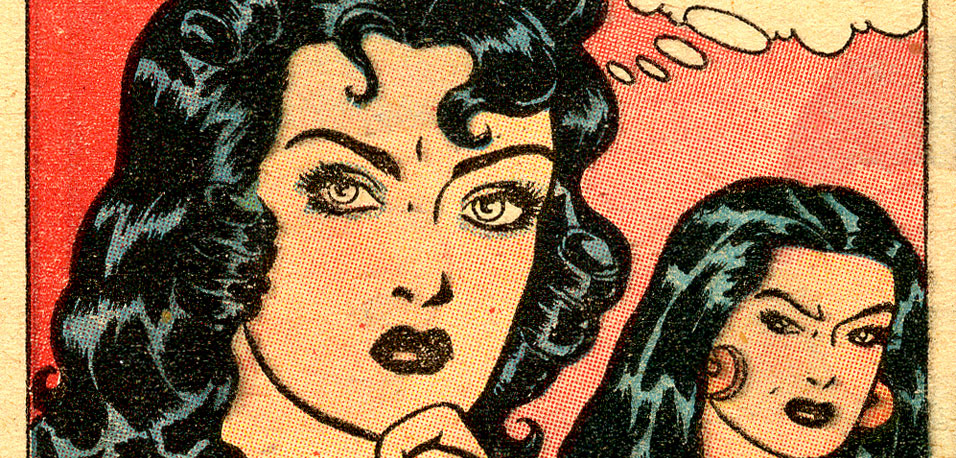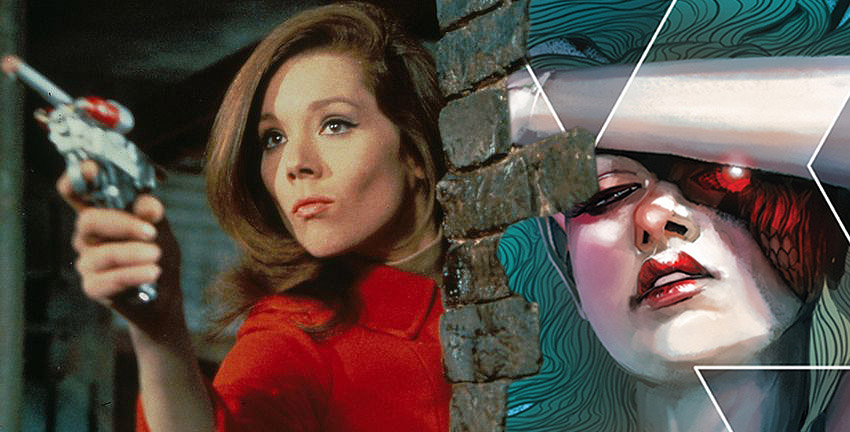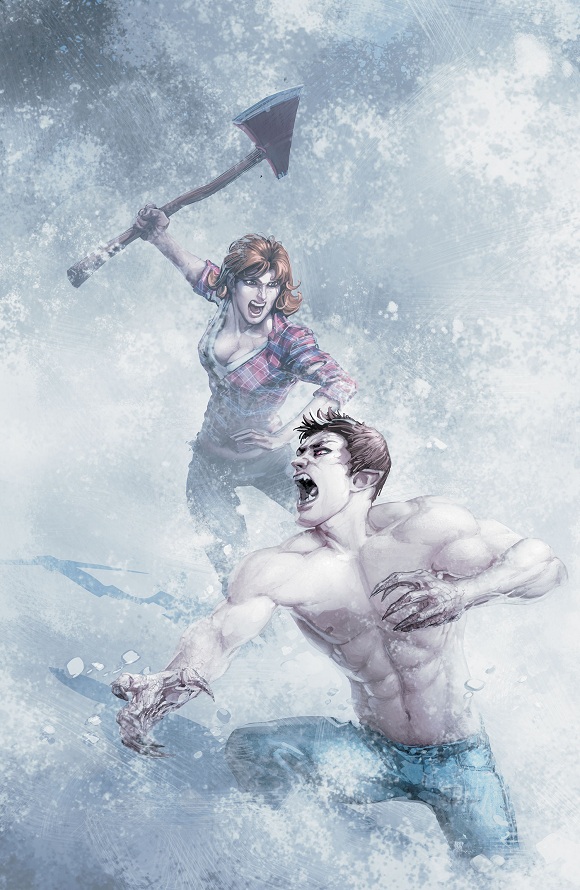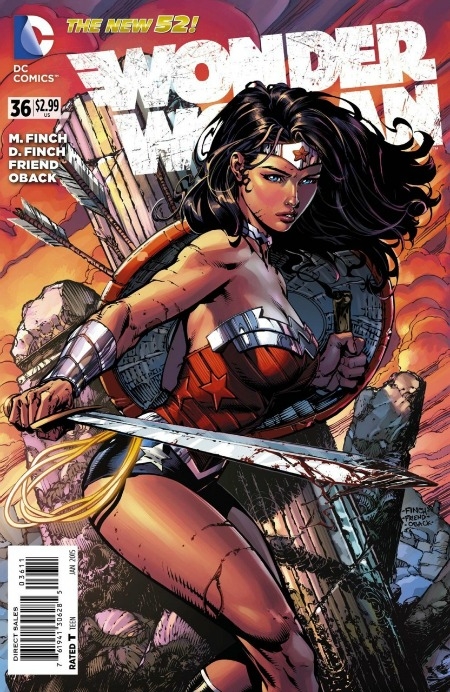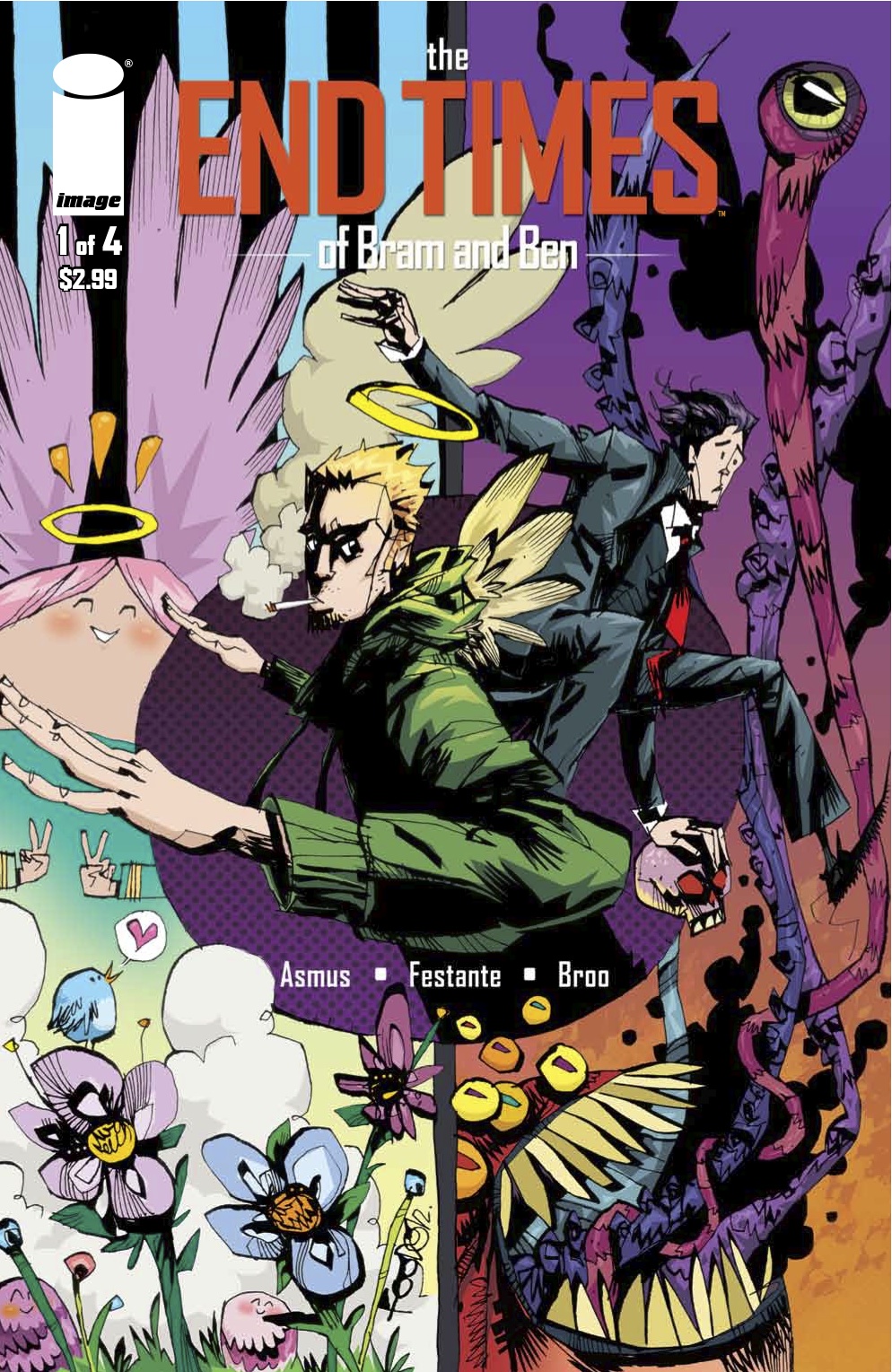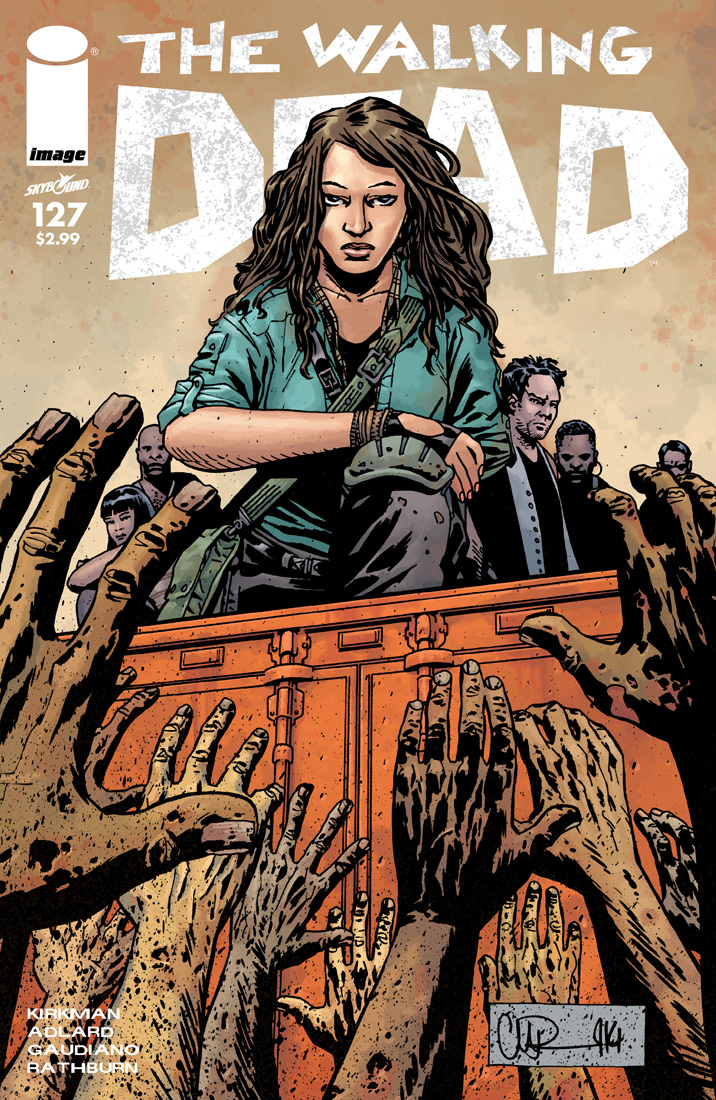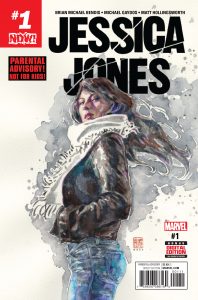
Jessica Jones #1
Writer: Brian Michael Bendis
Artist: Michael Gaydos
Color Artist: Matt Hollingsworth
Letterer: VC’s Cory Petit
Cover: David Mack
Review By: Nate Mondschein (@33andMoonshine)
—In the immortal words of French philosopher Jean Jaques Rousseau: “SPOILERS AHEAD for Jessica Jones #1”—
Once upon a time there was a man who could leap tall buildings in a single bound, and I didn’t give a shit.
Let me start over.
It’s been twelve-years-and-change since the final issue of Brian Michael Bendis and Michael Gaydos’ Alias hit shops. But from the moment we break David Mack’s Rorschach-Blot-Turned-Beautiful-Portrait of a front cover to see our flustered protagonist shield her eyes against the sunlight, it feels as though Jessica Jones #1 is picking up right where things left off.
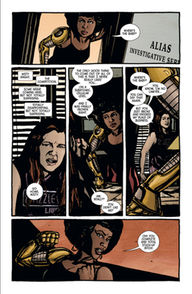
Which is not to say that nothing has changed. We join everyone’s favorite private eye named “Jessica” whose last name isn’t “Drew” in the midst of her release from an unexplained stint in prison. She returns home to an answering machine full of questions and a furious Misty Knight, demanding the whereabouts of the Cage/Jones super-baby. And as is to be expected in any JJ story, things spiral downwards rapidly from there, propelled by a seemingly endless string of mysteries: What landed our leading anti-heroine in The Cellar? What went so wrong between her and her unbreakable hubby? Is it actually possible that Secret Wars III could have had a lasting and significant impact beyond disenchanting longtime Marvel fans? And WHERE THE HELL IS THE BABY?!?!?!
As we chase down leads, Bendis plays to his strengths, anchoring the narrative in his distinctively Less-Preachy-But-Still-Sorkin-Esque dialogue. When the violence comes, it is raw, hurried and unsteady, but the real action lives in the quick banter and the weight of the silences that follow. What humor dances in between is self-referential and bitingly critical (“Where are the Fantastic Four! No one even talks about them anymore!” cries Jess’s newest client, seconded immediately by everyone, ever). At times, Bendis almost appears to be in conversation with his concurrent titles, sending Jessica’s shot at Dr. Strange’s “porn ‘stache” hurtling across town to intercept yet another one of his and Iron Man’s “Awesome Facial Hair Bros” hi-fives. In every way one could hope, each moment of Jessica Jones #1 swells with the sarcasm and self-deprecation that have been integral to her character since Alias #1.
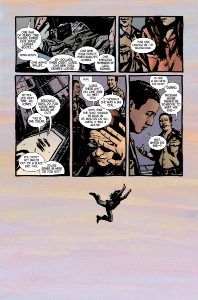
Michael Gaydos’ art has similarly aged into an even more nuanced mastery of an already refined and evocative tone. Each page breathes with a level of maturity in its restraint and recognition of how much we can glean from so little: the story of isolation told in Jessica’s unbalanced flail of limbs as she hurls herself across thin wisps of evening clouds; the impact of a downturned eye and single trail slipping from her face as she recovers from a guarded confrontation with ex-Spider-Pal Jessica Drew.
But where Gaydos truly excels is in his ability to ground a decidedly superhuman world in the decidedly human. As was the case in Alias, the settings of Jessica Jones #1 have a uniformly nearsighted quality to them, the sort that dulls the edges of your traditionally glamorous superhero tale: majestic bridges are little more than a wash of shadow; tall buildings to be leapt blur with an insurmountable distance; landings are clumsy and do not stick.
This quality extends seamlessly to the personal. Reminiscent of Michael Lark’s work on Gotham Central, Gaydos’ renditions of guest-supers show their age in wrinkles and extra pounds and bags under the eyes; even at their most flawless, none can make that necessary leap beyond “yeah, I think I recognize them from somewhere.” And Bendis’ dialogue is a perfect match, full of missed cues and impulsively profane outbursts and punch lines falling flat, allowing us to forget for a moment that what we hold in our hands is a refined, well crafted work of scripted fiction.
Even as we do, Jessica slouches at her desk listening to the final message of an overflowing machine (though the first unrelated to her personal drama). A thin smile creeps across her face as she exclaims “A case! Need money. And the illusion of normalcy…bad.”
And in that simple moment, deliberately or otherwise, Bendis slips a thesis right under our noses: The necessary illusion of Normal.
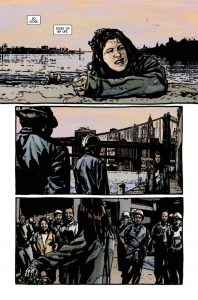
In the midst of a multiversal, gamma powered, Inhuman world, Jessica Jones (with all her failings and destructive impulse) is our much needed window into Normal: That avoid your best friend’s calls kind of normal; That need to get my shit together right after this drink kind of normal; That kind of normal we all recognize from too many years of pretending it wasn’t our kind of normal. When we looked to the genius vigilante, or the galactic peacekeeper, or the Superman, and tried to convince ourselves that that could be our story, just one radioactive accident away.
Sooner or later, we found ourselves surrounded by characters that looked nothing like us. Sooner or later, the world we had chosen became unrecognizable.
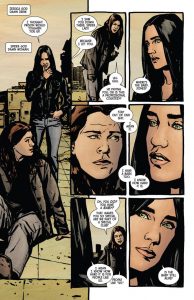
But Jessica Jones is here to help. Normal is a very contagious thing here, the sort that bleeds out across the pages and marks everything it touches: Carol Danvers stammering as she tries to offer an ear across the phone lines to a friend in need; Misty Knight rearing back to take a swing, cursing the newly released Jones; even the Champions trio of Kahn and Morales and Alexander cutting down 31st (if my NY eyes do not deceive me…) late to some avenging duty or another; for a moment, we consider each and every one of them as much a part of this very real, very imperfect world as the rest of us. We remember that out of the costume and the line of fire, sometimes Tony Stark looses his train of thought. Sometimes Kate Bishop calls a complete stranger a dick under her breath. Sometimes, even our greatest heroes fall prey to Normal.
This does not make them any less heroic. It makes them human.
Once upon a time, there was a man who could leap tall buildings in a single bound.
Jessica Jones can barely make it to the ledge.
For my money, I will pick her every time.
Verdict: BUY. JJ is back with every ounce of wit and power and self-destruction we could ever hope for. Add in a pinch of multiversal mystery, plenty of high-stakes character drama, and the occasional “bitchcakes,” and I can’t think of a single reason to leave this one on the shelves.


